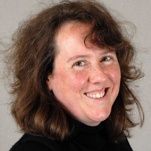Leverhulme Trust
Research Project Grants
Sciences
- Award winner: Chris Jarrold
- Institution: University of Bristol
- Value: £193,065
The development of procedural working memory
- Award winner: Ai-Lan Lee
- Institution: Heriot-Watt University
- Value: £106,832
Dual catalysis: gold and photoredox catalysis for stereoselective synthesis
- Award winner: Neil Champness
- Institution: University of Nottingham
- Value: £260,350
Structural elucidation and reactivity modification in metal-organic frameworks
Social sciences
- Award winner: Nicholas Bardsley
- Institution: University of Reading
- Value: £77,373
How individual is “individual choice”? Exploring team reasoning in context
Royal Society
Wolfson Research Merit Awards
Awards are worth £10,000-£30,000 a year, which is a salary enhancement
- Award winner: Hywel Morgan
- Institution: University of Southampton
Low-cost thin film transistor electronic systems for healthcare and diagnostics
- Award winner: Andrew Smith
- Institution: University of St Andrews
Developing catalysis research: new reaction discoveries and practical applications
- Award winner: Mark Sandler
- Institution: Queen Mary University of London
Computational audio: the importance of sound in computational systems
Arts and Humanities Research Council
Leadership Fellowships
- Award winner: Catriona Kelly
- Institution: University of Oxford
- Value: £194,544
The Soviet cine-underground: Lenfil’m (the Leningrad State Film Studio) and the transformation of late Soviet culture, 1956-1991
- Award winner: Dale Timothy Townshend
- Institution: University of Stirling
- Value: £179,998
Writing Britain’s ruins, 1700-1850: the architectural imagination
- Award winner: Robert Stern
- Institution: University of Sheffield
- Value: £195,374
The ethical demand: Løgstrup’s ethics and its implications
In detail

Award winners: Amanda Rees (PI), Iwan Morus and Lisa Garforth
Institutions: York, Aberystwyth and Newcastle universities
Value: £598,742 (AHRC contribution)
Unsettling science: expertise, narrative and future histories
This project investigates the relationship between science, fiction and popular culture over the course of the long technological 20th century (1887-2007), focusing on the ways in which writers, policymakers and the general public used innovations in science, technology and medicine to understand their present as well as to “anticipate, think and worry about the future”, Amanda Rees, senior lecturer in the department of sociology at the University of York, told Times Higher Education. “We hope it will clearly demonstrate the influence that science has had on the directions taken by literary, political and philosophical culture over the course of the 20th and 21st centuries – especially in relation to how these cultures have conceived and represented their futures,” she added. “Persistent misunderstandings and assumptions about the nature of the relationship between science and society, and of the ways in which science and technology form the context for social development and change, tends to hinder the public and policymakers in identifying and solving problems at both the systemic and the individual level.”
Register to continue
Why register?
- Registration is free and only takes a moment
- Once registered, you can read 3 articles a month
- Sign up for our newsletter
Subscribe
Or subscribe for unlimited access to:
- Unlimited access to news, views, insights & reviews
- Digital editions
- Digital access to THE’s university and college rankings analysis
Already registered or a current subscriber?

